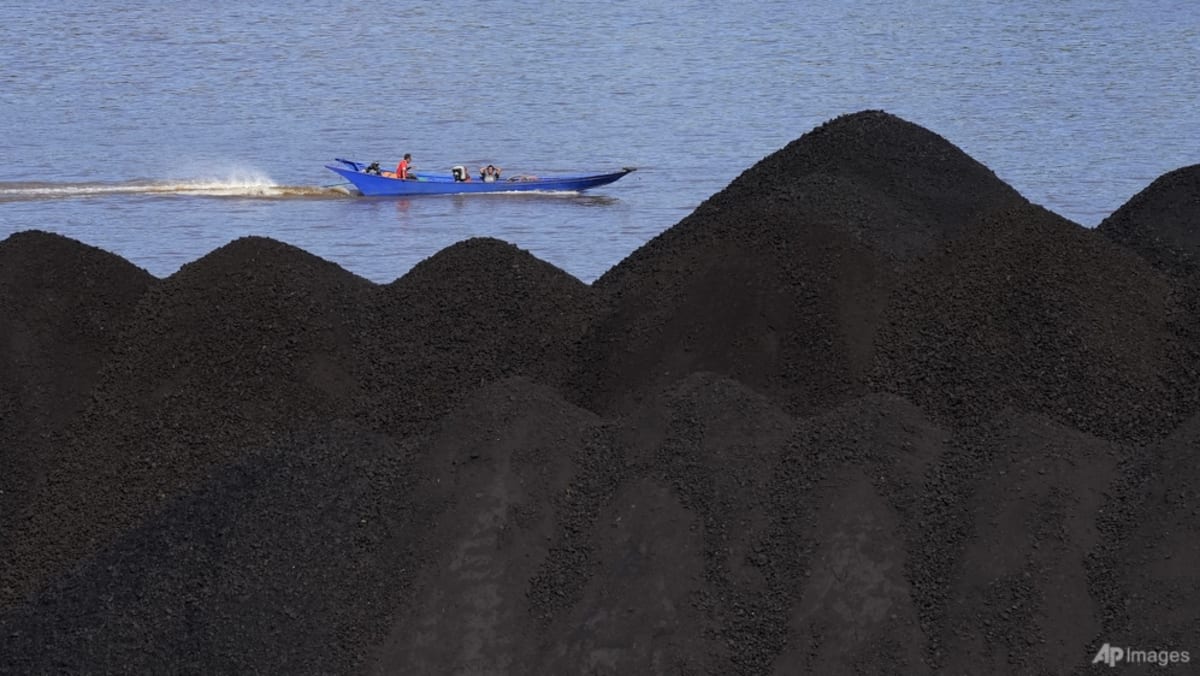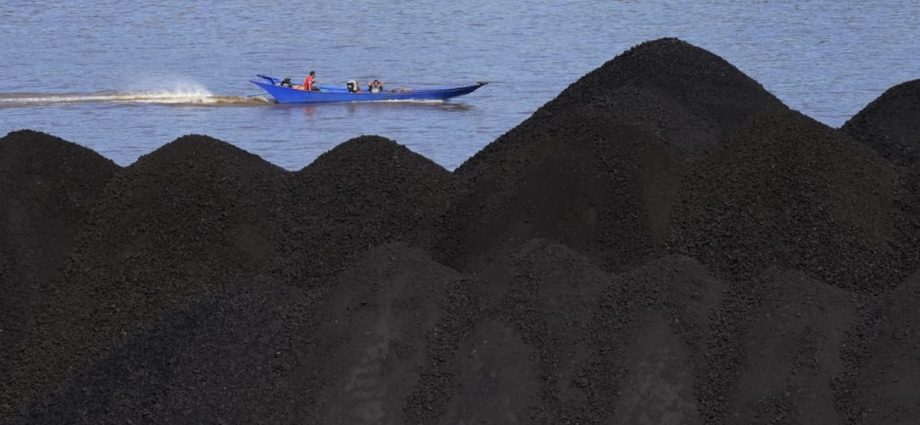
SAMARINDA, Indonesia: In Indonesia’s region of East Kalimantan, the country’s dependence on coal is on full display.
Driving on the region’s toll road, passers-by can watch excavators digging coal from shallow pits as trucks filled with the carbon-rich rocks rush by. Under a bridge in Samarinda, the region’s capital, hundreds of mammoth, jet-black mountains of coal sit in barges being pulled along the waterway, headed to plants across Indonesia or other countries.
They are sights that Indonesia has pledged to phase out – or at least drastically reduce – by agreeing to several schemes with international stakeholders, including the largest-signed US$20 billion Just Energy Transition Partnership (JETP) deal.
While the deals aim to turn one of the largest coal-producing countries toward its vast greener energy sources, experts warn that financial, policy, infrastructure and other challenges need to be overcome.
Indonesia’s energy transition is “very unique” because of high economic growth, geography, population centres and clean energy potential, said David Elzinga, a principal energy specialist at the Asian Development Bank.
Despite Indonesia’s energy potential from solar, hydropower, geothermal, wind and other sources, only about 12 per cent of them are tapped, according to the International Renewable Energy Agency. Nearly all energy demand is met by fossil fuels, with 60 per centc oming from highly polluting coal.
That means people like boat maker Jembong, 55, who like many Indonesians uses only one name, can rely on solar for a lightbulb or to watch television. But for the energy-intensive power tools he uses to handcraft boats from his home on Karampuang Island, he needs diesel.
“If I can’t use the diesel engine, I can’t work,” he said.
It has impacted the environment: In 2021, Indonesia’s energy sector emissions were around 600 million tons of carbon dioxide, the world’s ninth highest, according to the International Energy Agency. And population and economic growth are expected to triple the country’s energy consumption by 2050.
“It’s a challenging environment to make change while you have such substantial growth,” said Elzinga. “It is different than a developed country which is characterised by having significant financial resources and low economic growth.”
Many more-developed economies have stronger renewable ambitions, though researchers say no country is currently in line with global climate goals.
Indonesian officials have signalled that they have started the shift: They have announced new regulations around solar, set a goal to raise the market share of electric vehicles in Indonesia to 25 per cent of total vehicle sales by 2030 and have deployed charging stations. But experts warn that Indonesia is lagging behind its Southeast Asian peers.
Indonesia has said that it needs help from more-developed nations.
“We don’t want to be limited in terms of our ability to grow economically,” said Deputy Coordinating Maritime Affairs and Investment Minister Rachmat Kaimuddin. “Industrialised nations can support us.”

